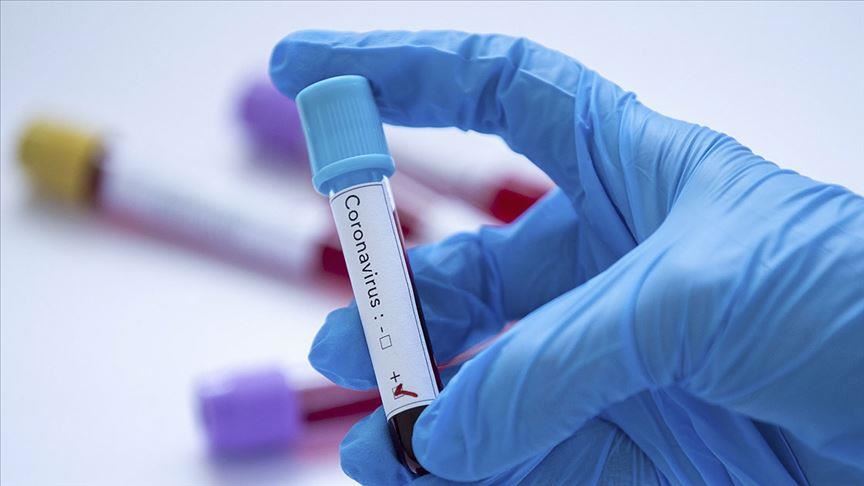Rwanda uses Ebola experience to combat COVID-19
Health experts said techniques employed to prevent the spread of Ebola in 2018 have come handy to combat coronavirus

KIGALI, Rwanda
Using skills and expertise developed to tackle the 2018 Ebola crises, the landlocked East African country of Rwanda has so far largely managed to stem the spread of coronavirus.
According to the U.S.' John Hopkins University, the tiny African country with a population of 12.3 million has so far reported 147 cases. Out of those, 80 have recovered.
“No patient has been admitted under intensive care unit and the country has not registered any COVID-19 related death,” according to the Rwandan Health Ministry.
“In Rwanda, the response was swift, effective, and well organized with a clear objective and clear purpose,” Vedaste Ndahindwa, an epidemiologist working in the World Health Organization (WHO) in Rwanda told Anadolu Agency.
The ministry on Saturday announced mandatory wearing of face masks as a measure to stop spreading of the virus.
Rwanda has set up a COVID-19 Command Post in the capital Kigali, bringing together 400 professionals from different sectors to coordinate activities aimed at containing coronavirus in the country.
“There are many sectors involved, the leadership is highly supportive of the action. So, when you see for example medical professionals, police, army, and other partners, they are all working together in a coordinated manner,” Ndahindwa said.
Rwandan President Paul Kagame recently visited the post, where he commended health workers across the country for their service to the nation.
Rwanda has extended lockdown until April 30 to contain the virus outbreak. Unnecessary movements are banned except for essential services such as healthcare, food shopping or banking and personnel performing such services. Schools, universities, and places of worship across the country have been shut.
Soon after the COVID-19 outbreak in December 2019 and fearing its spread in the continent, the Rwandan government set up a multidisciplinary team to assess and strengthen preparedness and response to the epidemic. Some 500 health persons that included laboratory technicians were trained immediately.
Scaled-up surveillance
Health Minister Daniel Ngamije, said the government has scaled up disease surveillance and testing facilities.
Ndahindwa said due to expanded surveillance there is no community transmission of the virus in the country and health personnel have been able to trace all potential sources of transmission.
The early lockdown also localized the virus in the capital Kigali and did not allow it to move to other areas.
“In Rwanda, it is just sporadic transmission, where you can know who infected whom. It becomes a challenge when you have community transmission, whereby you cannot identify sources of transmission,” he said.
According to Ndahindwa the techniques employed in preventing Ebola, from spilling into Rwanda from the neighboring Democratic Republic of Congo in 2018 were useful to find solutions to the current pandemic.To combat Ebola, Rwanda had set up a fully-equipped center and launched screening at all entry points. It also stepped up Ebola awareness and community engagement throughout the country using various communication channels.
“In terms of communication channels, it was a continuation of something that had happened during Ebola preparedness. So, it was not starting from zero. Measures were existing already and we just needed to expand capacity,” he said.
Despite a positive picture, the country faces challenges that included obtaining supplies at the time of a global shortage.
“This is not specific to Rwanda it cuts across many African countries and other low- or middle-income countries. Even when there is money, ordering materials is a problem, you do not get the quantity that you need, because of the global shortage of supply,” he said. Another challenge, he identified is to ensure people observe lockdown.
At least 1,158 people have died across Africa as of Tuesday, according to the statistics issued by the Africa Center for Disease Control and Prevention (Africa CDC). The number of confirmed cases across the continent have reached to 23,505 with 5,833 recoveries.
The virus has spread to 185 countries and regions worldwide since it emerged in China last December, with the U.S. and Europe now the hardest-hit regions.
More than 2.56 million cases have been reported worldwide, with the death toll over 177,000 and nearly 682,000 recoveries, according to data compiled by U.S.-based Johns Hopkins University.Anadolu Agency website contains only a portion of the news stories offered to subscribers in the AA News Broadcasting System (HAS), and in summarized form. Please contact us for subscription options.








